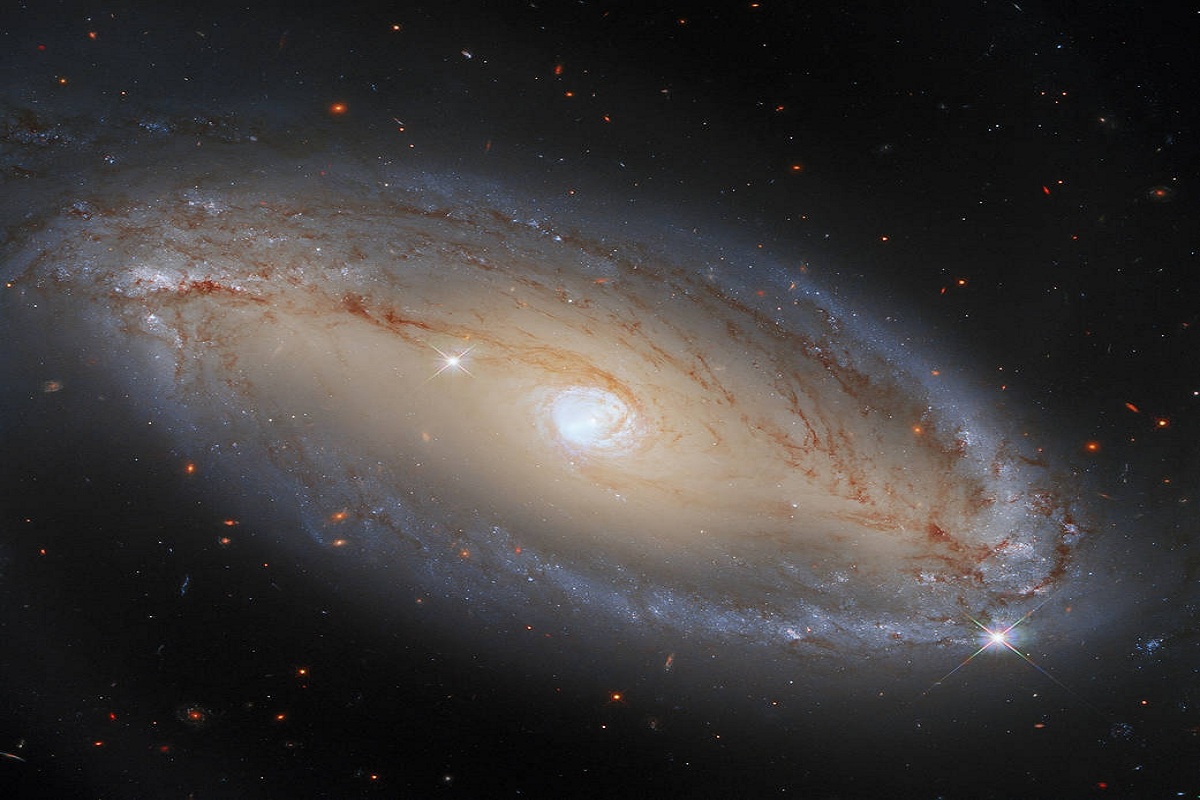Sun’s activity is behind Neptune vanishing clouds
Astronomers have uncovered a link between Neptune’s disappearing clouds and the increasing activity of the Sun as it approaches its…
A team of astronomers using the powerful James Webb Space Telescope have discovered the most distant barred spiral galaxy similar to the Milky Way that has been observed to date.

(Image credit: ESA/Hubble, A. Riess et al., J. Greene)
A team of astronomers using the powerful James Webb Space Telescope have discovered the most distant barred spiral galaxy similar to the Milky Way that has been observed to date.
Until now it was believed that barred spiral galaxies like the Milky Way could not be observed before the universe, estimated to be 13.8 billion years old, reached half of its current age.
“This galaxy, named ceers-2112, formed soon after the Big Bang,” said Alexander de la Vega, postdoctoral researcher in the Department of Physics and Astronomy at the University of California, Riverside.
Advertisement
“Finding ceers-2112 shows that galaxies in the early universe could be as ordered as the Milky Way. This is surprising because galaxies were much more chaotic in the early universe and very few had similar structures to the Milky Way,” he said.
The research is published in the journal Nature. Ceers-2112 has a bar in its center.
De la Vega explained that a galactic bar is a structure made of stars within galaxies. Galactic bars resemble bars in our everyday lives, such as a candy bar.
It is possible to find bars in non-spiral galaxies, he said, but they are very rare.
“Nearly all bars are found in spiral galaxies,” said de la Vega.
“The bar in ceers-2112 suggests that galaxies matured and became ordered much faster than we previously thought, which means some aspects of our theories of galaxy formation and evolution need revision.”
Astronomers’ previous understanding of galaxy evolution was that it took several billion years for galaxies to become ordered enough to develop bars.
“The discovery of ceers-2112 shows that it can happen in only a fraction of that time, in about one billion years or less,” de la Vega said.
In the past, when the universe was very young, galaxies were unstable and chaotic. It was thought that bars could not form or last long in galaxies in the early universe.
The discovery of ceers-2112 is expected to change at least two aspects of astronomy. “First, theoretical models of galaxy formation and evolution will need to account for some galaxies becoming stable enough to host bars very early in the universe’s history,” de la Vega said.
“Second, the discovery of ceers-2112 demonstrates that structures like bars can be detected when the universe was very young.”
Advertisement